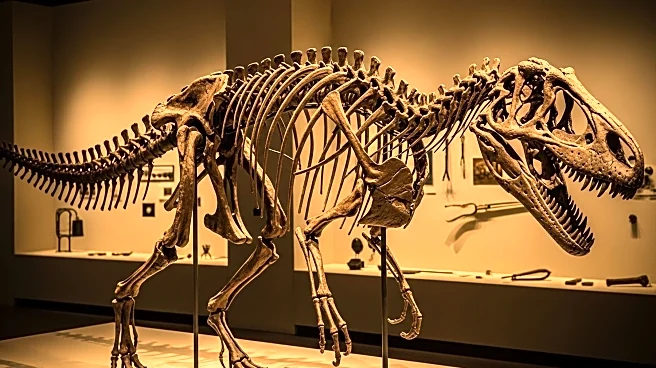What's Happening?
A new species of dinosaur, Joaquinraptor casali, has been discovered in Argentina. This dinosaur, classified as a megaraptoran, was approximately 23 feet long and featured massive claws, suggesting it was an apex predator during the Late Cretaceous Period. The discovery was made in the Lago Colhué Huapi rock formation in Patagonia, where researchers uncovered parts of a skull, arm, leg, and tail bones. The fossil was found with a crocodile bone in its mouth, providing insights into its diet and predatory behavior. The dinosaur was named in memory of Lucio Ibiricu's son, Joaquin.
Why It's Important?
The discovery of Joaquinraptor casali fills a significant gap in the understanding of megaraptorans, offering one of the most complete skeletons of this group to date. This finding enhances knowledge about the diversity and evolutionary timeline of dinosaurs, particularly in South America. It also provides valuable information on the ecological dynamics of prehistoric flood plains, contributing to the broader understanding of dinosaur extinction and survival strategies.
What's Next?
Further research is expected to focus on the hunting strategies and ecological role of Joaquinraptor casali, as well as its place in the evolutionary timeline. Scientists may continue to explore the Lago Colhué Huapi formation for additional fossils that could shed light on the behavior and environment of megaraptorans.
Beyond the Headlines
The naming of the dinosaur after Joaquin highlights the personal connections and motivations that often drive scientific discoveries. This aspect underscores the human element in paleontological research, where personal stories and legacies can intertwine with scientific advancements.










